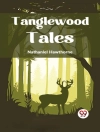In ‘Middlemarch, ‘ George Eliot crafts a richly textured panorama of provincial life in 19th-century England, combining intricate character studies with profound social and political commentary. The novel is renowned for its innovative narrative style, marked by psychological depth and a multifaceted perspective that explores the interconnected lives of its diverse cast. Eliot navigates themes of ambition, marriage, idealism, and the quest for meaning, highlighting the struggles of her characters against the constraints of their society, making it an essential work reflecting the complexities of modernity in the Victorian era. George Eliot, the pen name of Mary Ann Evans, defied the gender norms of her time, using her intellect and literary prowess to illuminate the plight of women and the injustices present in society. Her own experiences of living in a male-dominated world and her keen observations of contemporary social issues inspired her to write ‘Middlemarch, ‘ which stands as a testament to her belief in the moral imperative of individual responsibility and societal change. Eliot’s philosophical inquiries and psychological realism resonate throughout the novel, reflecting her commitment to truth and empathy in storytelling. ‘Middlemarch’ is highly recommended for readers seeking not only a compelling narrative but also a thoughtful exploration of human psychology and societal dynamics. Its relevance endures, inviting readers to reflect on personal and social aspirations in their own lives. This intricate tapestry of interwoven destinies will captivate anyone interested in the complexities of human experience.
Про автора
George Eliot, the pen name of Mary Ann Evans (1819–1880), remains one of the preeminent figures in Victorian literature. Renowned for her complex narrative style and the richly detailed tapestry of rural life she presents, Eliot was actively contributing to the Victorian novel tradition with an intellectual vigor and psychological depth that remain impactful to this day. Her masterpiece, ‘Middlemarch: A Study of Provincial Life’ (1871–1872), is often cited as one of the greatest novels in the English language and is acclaimed for its intricate exploration of society and moral choices. Eliot’s literary style is hallmarked by her piercing exploration of her characters’ psychological landscapes, her meticulous detailing of the settings, and a forward-thinking emphasis on realism. Besides ‘Middlemarch’, her notable works include ‘Adam Bede’ (1859), ‘The Mill on the Floss’ (1860), ‘Silas Marner’ (1861), and ‘Daniel Deronda’ (1876). These writings not only provide insight into the author’s expansive understanding of the human condition but also serve to solidify her status as an intellectual force who defied the gender norms of her time by adopting a male pen name in order to be taken seriously as a novelist. Eliot’s nuanced portrayal of social and individual conflicts continues to endow her writing with a timeless resonance.












